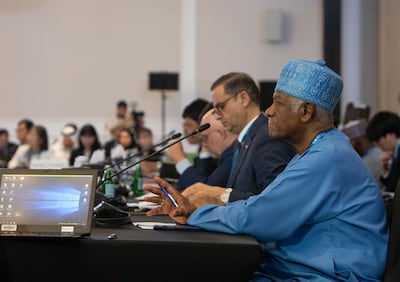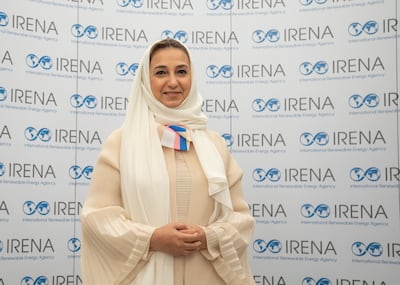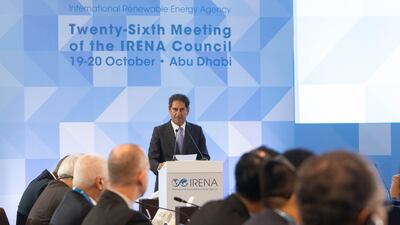The Cop28 climate summit in the UAE will show that the possibility of staying on the 1.5°C-pathway is “slipping away”, the International Renewable Energy Agency’s chief has said.
Countries have committed to limiting average global temperature increases to 1.5°C above pre-industrial levels under the 2015 Paris Agreement.
There’s a “small” chance to “course correct” by rapidly accelerating the deployment of vital technologies in a just and inclusive manner, Francesco La Camera, the agency’s director general, said during the 26th Meeting of the Irena Council in Abu Dhabi on Thursday.
“We are also acutely aware that the implementation of sustainable development goals is lagging across the entire agenda, and energy is the backbone of … these global commitments,” he said.
Mr La Camera’s remarks come weeks ahead of the Cop28 summit, where countries will assess where they stand with regard to climate goals as part of a process called the global stocktake.
Last month, a group of more than 250 organisations, including Irena, published an open letter calling on world leaders to work towards the target of tripling renewable energy capacity to 11,000 gigawatts by 2030.

Annual renewable power capacity must add an average of 1,000 gigawatts annually by 2030 to meet Cop21's Paris Agreement goals, according to Irena.
The Paris deal’s main goal is to limit global warming to well below 2°C – and aim for 1.5°C, compared with pre-industrial levels. That involves, among other things, reaching carbon net zero by the middle of the century.
Although global renewable capacity in the power sector grew by a record 300 gigawatts last year, the gap between actual progress and the development required to achieve long-term climate goals has continued to grow, the Abu Dhabi-based agency said in June.
“We increasingly see alignments with Irena’s long-standing estimates that were considered too ambitious a few years ago,” Mr La Camera said.
The head of Irena called for a “strategic shift” in institutional capacities worldwide to help ensure that skills and capabilities match an energy system with a high share of renewables.
The tools and means to mitigate climate change “do exist”, but the world requires more political will to provide clarity of direction, he said.
The Irena meeting is a dialogue between the members and the agency’s secretariat, with the aim of helping countries meet their national climate targets.

“Some countries would like to support with the policies [and] other countries would like to support with the technologies,” said Nawal Al-Hosany, permanent representative of the UAE to Irena.
Countries with the funding would like to be matched with the right projects, Ms Al-Hosany told The National on the sidelines of the event.
Global investments in energy transition technologies must quadruple to $35 trillion by 2030 to stay in line with commitments made under the Paris climate agreement, the Irena said in a March report.
Investments in renewable energy technologies reached a record $1.3 trillion last year but that figure must rise to about $5 trillion annually, the agency said.
The world is “dangerously off track” on reaching the UN’s sustainable development goals due to a lack of investment in developing economies, UN secretary general Antonio Guterres said on Monday.
Sustainable finance in global capital markets is “booming”, but the money is not reaching countries where it is most needed, he said during the World Investment Forum in Abu Dhabi.

